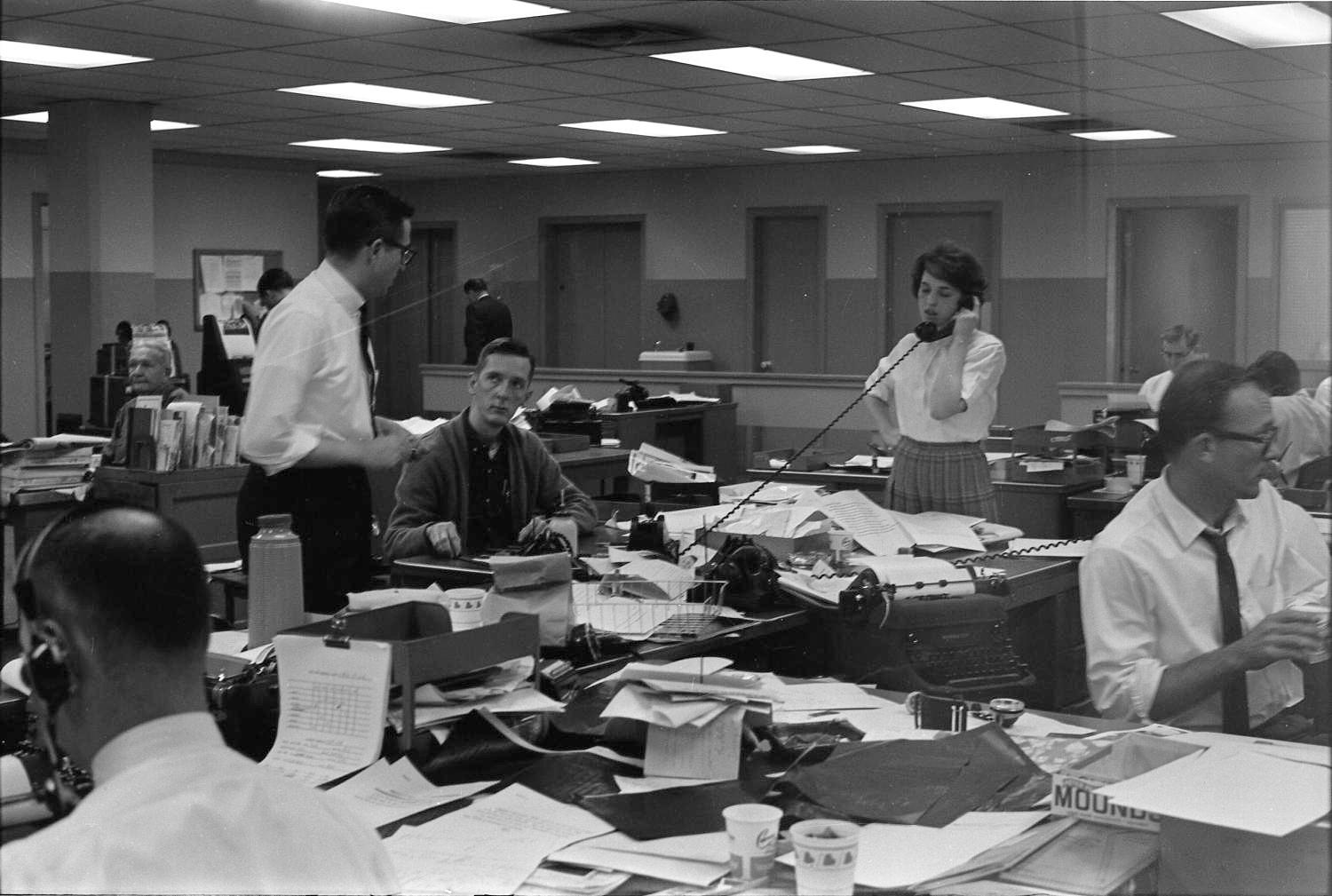 When I joined the Sun-Times, it was an article of faith on my part that, given time, my newspaper could overtake and eclipse the mighty Chicago Tribune. The Trib was “caught in a time warp,” as it later admitted on its own pages. Colonel Robert Rutherford McCormick, known as The Colonel (or just Bertie to his family) had ruled the Tribune Company for almost half a century before his death on April 1, 1955. He was staunchly conservative, and the news columns of the Tribune plainly reflected McCormick’s partisanship.
When I joined the Sun-Times, it was an article of faith on my part that, given time, my newspaper could overtake and eclipse the mighty Chicago Tribune. The Trib was “caught in a time warp,” as it later admitted on its own pages. Colonel Robert Rutherford McCormick, known as The Colonel (or just Bertie to his family) had ruled the Tribune Company for almost half a century before his death on April 1, 1955. He was staunchly conservative, and the news columns of the Tribune plainly reflected McCormick’s partisanship.
Shortly before his death, McCormick summoned his three most loyal lieutenants to his winter home in Florida. One he made publisher of the Tribune and one its general manager. To Don Maxwell he bestowed the big prize, that of editor. It seemed to even casual readers of the Tribune more than a dozen years later that Maxwell’s main goal in life thereafter became keeping The Colonel’s spirit alive. The paper was and remained a typographical mess, something that belonged in the 1930s. The pro-Republican partisanship it was so well known for (remember “DEWEY DEFEATS TRUMAN” in 1948?) lived on in the news columns, too. The world was changing, but not the Chicago Tribune. Therein resided my hope that the Sun-Times could dominate the city’s newspaper world.
The “Ho Chi Kennedy” editorial of February 21, 1966, became a classic example of the strident voice of the Tribune. The Vietnam war was being ramped up by President Lyndon Johnson at a rapid pace, but evidence that the North Vietnamese-backed Viet Cong were being defeated in South Vietnam was scant. Massachusetts Senator Robert Kennedy proposed a political solution that would give the Viet Cong a voice in South Vietnam’s government.
The Tribune reacted as if Kennedy had suggested that Nikita Khrushchev be made vice president of the United States. It plastered on its front page an editorial titled “Ho Chi Kennedy” that all but called the senator a traitor. It did, in fact, label Kennedy the “senior senator from Communist North Vietnam.”
When a bundle of the home edition of the Tribune was delivered to the Sun-Times at 11 that evening, my future colleague John Adam Moreau couldn’t believe his eyes. He decided upon little practical joke. John Adam later said that another night-side reporter, Dick Foster, put him up to it, but Foster claims his hands were clean.
What John Adam did was open the north suburban phone book, find Maxwell’s home phone number in Evanston, and dial it. Maxwell’s groggy voice answered.
“Mista Maxwell, diss is Louie, down at the union hall,” John Adam said. “We’s don’t like the editorial about Senator Kennedy. Very disrespectful. He was the president’s brudda. So we’s and a bunch of other unions guys are gonna to throw up picket lines at the Tribune tomorrow morning at 10, to teach yous bums a lesson. Be there.” And he hung up. When a newspaper behaves like a bully, you can play the jolly prankster with a clear conscience.
Maxwell retired and in 1969 was succeeded by Clayton Kirkpatrick, who had been the Trib’s executive editor. Outwardly, Kirkpatrick seemed just another loyal Tribune lifer, but in fact he became the undertaker who quickly, effectively buried The Colonel. Quoting the New York Times’ 2004 obituary: “Mr. Kirkpatrick immediately wrote an editorial telling Tribune readers that they could expect changes in both the editorial page and news columns, and that ‘no political party’ should take the Tribune for granted.”
Jump ahead to 1973. I was Chicago bureau chief for the newsmagazine U.S.News & World Report and was told by my editor, Marvin Stone, to arrange some visits with Chicago movers and shakers when he came to town for a visit. I immediately booked a dinner reservation for the Stones, Kirkpatricks, and Fraileys, for the sole purpose of learning for myself who was this guy kicking the Tribune into fighting form. By the time that dinner ended, after listening to Kirkpatrick expand on his vision of what the Chicago Tribune could be without Colonel McCormick’s ghost hanging around, I knew the Sun-Times would forever have to fight like hell to survive.
